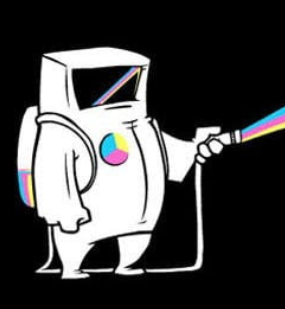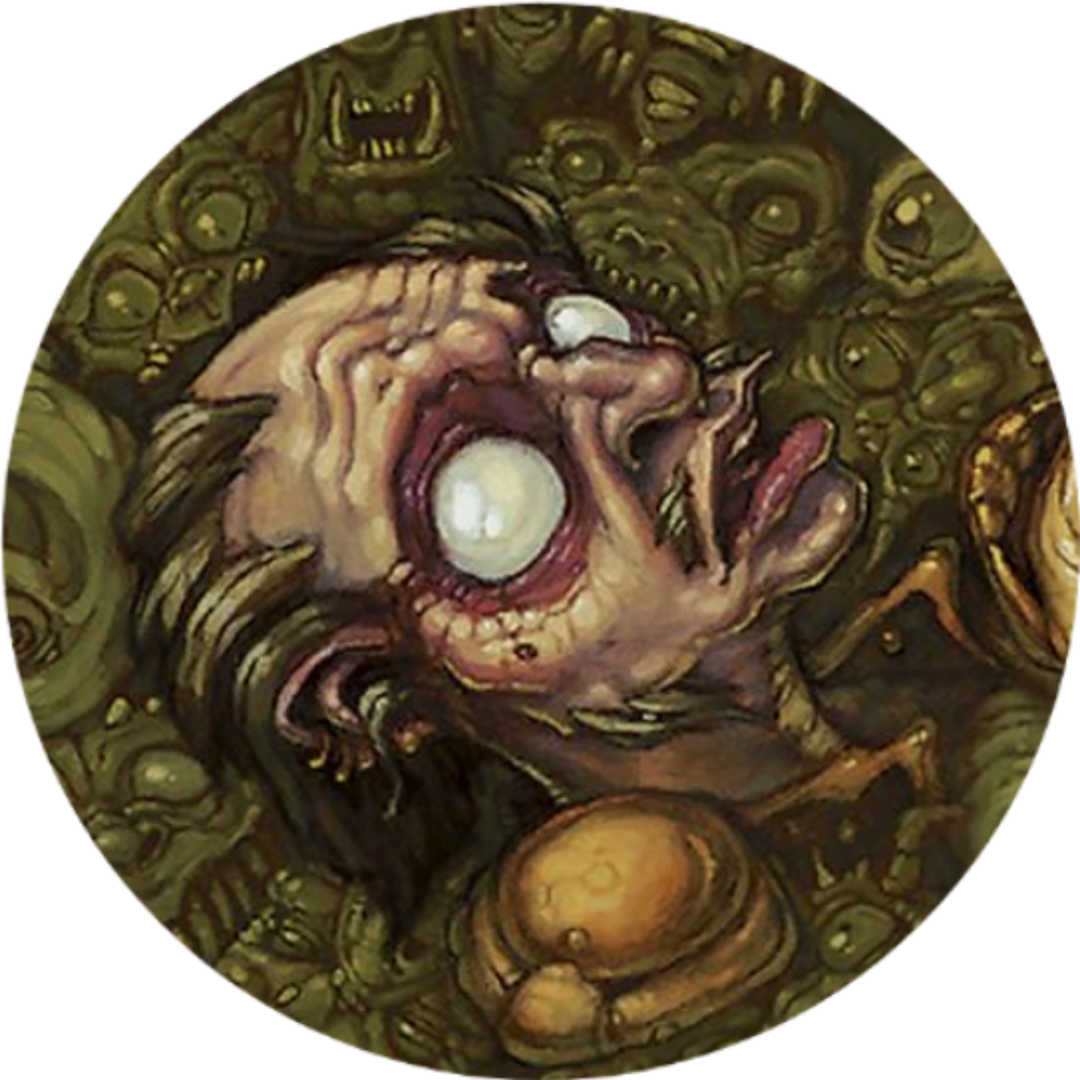Hi, English isn’t my mother tongue so I was asking myself that question since I first encounted a w/… Back then I was like: “What tf does ‘w slash’ stand for?” And when I found out I was like “How, why, and is it any intuitive?” But I never dared to ask that until now
All in all, the / is just one style of abbreviation used in English. It’s not only used for “with”, but also a few other words (w/o = without, N/A = not applicable).
In German we abbreviate using a dot (e.g. “m.” = “mit” = "with). That’s not more or less intuitive, it’s just what you are used to.
What’s kinda special with English is that there are multiple abbreviation styles. Off the top of my head I can think of six styles:
- Abbreviate random parts of words using a slash: “N/A”, “w/”, “w/o”
- Abbreviate keeping only the first letter of a word using a dot: “e.g.”
- Abbreviate keeping the first and some random later consonants (and sometimes consonants that aren’t in the word at all) without using punctuation: Dr, Mr, Ms, Mrs
- Abbreviate using acronyms and no punctuation: BBC
- Abbreviate using acronyms and dots: B.C.
- Abbreviate by substituting parts of the word with a single letter: Xmas (Christmas), Xing (Crossing)
I’m used to Dr., Mr., Mrs. all needing the dot.
I’d also add the medical ones which all use x, and most use the first letter of the word, but not all, so it’s kinda point 3, kinda not:
- Prescription: rx
- Symptoms: sx
- Diagnosis: dx
- History: hx
I learned similar shorthand from an accountant, who wrote transfer (money transfer between accounts) as tx.
Also, it used to be obligatory to put the dot on Mr., Mrs., Dr., etc. I’m old, I remember how it was taught. And we called those dots “periods”. I haven’t been in school in decades, but I’ve been noticing those dots disappearing.
Both are possible: Dr and Dr.
Never heard of the x version. Very interresting.
deleted by creator
Might be. I’m neither Brit nor American, so I learned both.
Prescription: rx
I work in radio electronics and RX is receive. TX is transmit.
In programmer lingo we’ll sometimes shorten words with the number of letters in between:
i18n (internationalization) and L10n (localization). I just learned of g11n (globalization), too.
Wait until you learn about k8s
No thanks!
deleted by creator
Just start using it for everything and confuse everyone… I mean E6E
Also k8s for Kubernetes.
Wait. That is why it’s called i18n!? Never knew that.
True, forgot about that one. I really hat this style of abbreviation^^
T2e, f4t a3t t2t o1e. I r4y h2e t2s s3e o0f a10n^^
F3d i0t f1r y1u.
Aaarg!!
You’ll be a hero at work when your coworkers see how efficient your commit messages have become.
Clearly the next step in evolution will be this…
Y77e.
The information you see is only the identifier and metadata, the main content will be transferred directly via the neural transceiver.
you h2e it?
d4s (dingus)
r13y (reproducibility)
don’t forget using contractions on single words, like cont’d, pop’n (sometimes written popn)
don’t forget x in medical settings. eg, dx is diagnose, tx is treatment, etc
Abbreviate keeping the first and some random later consonants (and sometimes consonants that aren’t in the word at all) without using punctuation: Dr, Mr, Ms, Mrs
I think it’s usually the first letter(s) and the last letter(s). In older English handwritings I’ve come across M.ʳ etc. So I think that’s were those came from.
In the Speedwriting shorthand system, developed in 1924 for use with typewriter, / Is used to denote omitted sylables, so ‘with’ becomes w/ and ‘without’ becomes w/o. Here is a pretty deep guide on the precepts of Speedwriting:
But shouldn’t “w/o” then be written as “w/o/”?
And “N/A” omits more than one sylable in “applicable”.
I guess it’s a grown system.
Yeah. I have no evidence that this system invented those shortcuts, they may predate it by quite a bit
Yeah, it’s really hard to pinpoint such simple inventions.
Bonus points for one of your examples being e.g. which stands for exempli gratia, translating to “for example”
Which is kinda weird in it self, because when abbreviating you not only change the words but even the language.
Hardly anyone would ever write “exempli gratia” in a normal text, and “f.e.” would also not be understandible for most people.
So in regular use, “e.g.” is practically the abbreviation for “for example”
True, but we have lots of examples of that in English, to the point where I don’t think it’s that weird. e.g., i.e., b.c., a.d., etc., and so on. What’s even weirder to me is that we have sayings in English that use words that are otherwise not used anymore. “To and fro”, “lo and behold”, “eke out”, “inclement weather” (it’s hard to even find a definition of inclement because it’s only used to describe weather), “spick and span”, “days of yore”
In German, we too have words that only survived in specific versions. What’s really weird is that we have words like that, that died out, but a specific form survived, and then the word gets re-imported from another language with a slightly different meaning.
Take for example “Rasse” (race) and “Rassismus” (racism).
In German before WW1 the word “Rasse” was used to differentiate between the locals and the neighbouring “others”. So the usage was like “the German race”, “the French race”, “the English race”, “the Jewish race” and so on. After WW2 that word just about disappeared from the German language because it was used so heavily by the Nazis and also because it had no real meaning. They also used terms like “the Human race”. So race could be anything from “speaks another language but looks exactly like me” to “species”. It was almost exclusively (except for “the Human race”) used to dehumanize the others.
But the term “Rassismus” survived and it’s meaning is about the same as xenophobia in English. Thus, if a white person from France hates everyone from Belgium, that’s racism.
In the USA on the other hand, the word “race” was used to differentiate between the white population (which came from all over Europe) and the “others”, which in this case were Africans, Native Americans, Asians and South Americans. Like with the term “Rasse”, “race” was also used to dehumanize the others. And accordingly, “racism” only applies when someone hates people of another race by the USA definition. But unlike in German, the USA was never ruled by Nazis, and thus the word “race” was never discontinued.
And now the English word “race” is getting re-imported to the German language, but with the US meaning, because there is no German meaning left.
So right now in the German language, “Rasse” means Black, White, Asian, …, while “Rassismus” can totally be against someone who is of the same “Rasse” but speaks another language or is from another country.
Except Dr., Mr., ie., etc. use a period.
Both versions exist: https://en.m.wikipedia.org/wiki/Doctor_(title)#Abbreviation
What about acronyms and initialization?
m. is not a German abbreviation for mit, afaik. I never once read that. Where did you get that from?
As an Austrian, I have often seen it on food packaging with limited space. Something like “Rotkraut m. Apfel”.
That is interesting. Thanks.
Those are initialisms, not acronyms.
Wikipedia at least sees initialisms as a type of acronyms. But even if it didn’t, your comment would still be unhelpful pedantry.
K.
(That’s an initialism for “OK”.)
And OK is initialism for okay.
It’s actually an initialism for “Oll Korrect”. I’m not kidding.
Is that why people sometimes say “O.K.”? I always assumed it was just a grammar mistake. The more you know lol
Yeah, “O.K.” came first, “okay” was later. It has a weird history. According to the American Heritage Dictionary:
During the 1830s there was a humoristic fashion in Boston newspapers to reduce a phrase to initials and supply an explanation in parentheses. Sometimes the abbreviations were misspelled to add to the humor. OK was used in March 1839 as an abbreviation for all correct, the joke being that neither the O nor the K was correct. Originally spelled with periods, this term outlived most similar abbreviations owing to its use in President Martin Van Buren’s 1840 campaign for reelection. Because he was born in Kinderhook, New York, Van Buren was nicknamed Old Kinderhook, and the abbreviation proved eminently suitable for political slogans.
I’m not the person you were replying to, but the source linked on the wiki for that statement actually refers to them as being distinct.
Initialisms are acronyms
Similes are metaphors, too
As others said, with as w/ was around as part of secretarial shorthand, which got taught to most people keeping corporate documentation and it stuck.
There are a lot of abbreviations like that in the English language that came from abbreviations in written form due to the media in was written in, whether it was newspapers, telegraph, handwritten shorthand, or computer based. It may not make sense because English isn’t a language designed to make sense; it isn’t even designed.
Thank you for your answer mate :D
Pretty sure it started w/your mom
w/your mom
If we’re abbreviating things: w/ur mom
My mom ‘s so poor we need to save letters :’)
Some various answers here; but for me, it came from w/o as a shorthand for ‘without’, then I started sometimes writing w/ for ‘with’ and wondering if that’s okay!
My mother was a legal secretary, so she taught me shorthand when I was a kid. W/o was included in those teachings.
I’m not a linguist, but to me, langauge is fluid, in that it’s fine to use it any way you want, so long as the people involved can interpret it as intended.
Which means when you write a note in shorthand for yourself, so long as you can come back to it and decipher it at whatever point you need it then it’s fine.
If someone were to happen to come across it then there is a concern that they may interpret it wrong. As a silly example: If “I will fuck your mom” was your code for “I will pick up milk and eggs from the grocery store”, you can see how people (which could include you later) can interpret your message incorrectly, and you should pick a better shorthand in that case.
When communicating with others you’ll have contexts of what kind of things are relevant, like PoS may mean different things if you are talking to a store manager vs. your buddy, you have to be sure your listener or reader gets the correct version.
I wish I could upvote this more! Language is a living tool. Constant change in humanity requires communication tools that keep up.
Can’t agree more :D
In spanish we use the same abbreviation: c/ for “with” ans s/ for “without”
Til :D
Thanks for that reply :D
w/ appears to have origin in the food industry some 70 years ago (according to this question).
To me it makes sense, as I first encountered it in video games where abbreviations, acronyms, and text-saving-slang are commonplace. Furthermore, while abbreviations usually have multiple letters (in written text, not physical or mathematical equations), single letter abbreviations can quickly become confusing, so I belive that this is the reason for putting a slash behind it, or possibly a bar above it.
RANT: While I know that language changes all the time, I find it very unfortunate that this little fellow
o/and possibly his slightly more formal friendo7have become synonymous with “nazi salute”. First off, it’s the wrong arm! And second off, what do you have against “man waving” and “man saluting”?It must be very confusing for someone who uses this newer definition of o/ to visit the Elite:Dangerous forums.
EDIT: I’m very happy that I apparently am the only one who has met people who don’t know the real meaning of o/ and o7. I feared that this was a widespread problem, but luckily it appears that I simply am a worrywart.
RANT: While I know that language changes all the time, I find it very unfortunate that this little fellow o/ and possibly his slightly more formal friend o7 have become synonymous with “nazi salute”. First off, it’s the wrong arm! And second off, what do you have against “man waving” and “man saluting”?
Have they really? Never seen o7 used that way, with o/ it’s more understandable, but since one can easily just use \o (or use an actual unicode swastika) I just don’t see it getting that controversial. Seems even less known than the triple parentheses thing, which is something that most people who don’t spend their lives on the internet never heard about.
First time hearing o7 as ‘nazi salute’, I only know it as a ‘military/captain’s salute’ out of Eve Online, Elite and some milsim games
Poor o/ and o7
I am never stopping using these.
o7 is pretty popular on twitch, since you can use it in any chat without having a subscription
So it isn’t going anywhere yet
RANT: While I know that language changes all the time, I find it very unfortunate that this little fellow o/ and possibly his slightly more formal friend o7 have become synonymous with “nazi heil”. First off, it’s the wrong arm! And second off, what do you have against “man waving” and “man saluting”.
Never heard that but thanks for reporting o7
Perhaps (hopefully) i just encountered some folks who just assumed something, and that it’s not actually becoming a trend.
o/ is a wave, o7 is a salute of respect
Oh alright, thanks for your input. I never actually saw anyone using o/ and o7 but I wouldn’t have thought of them as nazi code. ^^
My guess is these became common with the telegraph. Since messages were expensive and the sender paid by the letter, abbreviations where commonly used to keep messages short.
Oh, another interesting take. Tysm for that reply :D
It comes from the letter “w” as in, “with”
Just wait until you encounter morse code abbreviations, some of which are still used in some industries. Like the wonderful X abbreviations, such as:
Wx - weather
Mx - maintainence
Tx/Rx - transmit/receive
Edit: I’m starting to think every industry totally did their own thing with morse abbreviations
Hx, Rx, Tx are history, prescription and treatment in medical jargon
Dx too
Removed by mod
Sx for symptoms also
sx makes me think of something else than symptoms
That sounds like a Sx of something
Cx - customer is one I run into daily.
Tx/Rx - transmit/receive
I work in radio electronics. I use these, too.
Lol those are wild
I know this isn’t an answer on the topic of the history of abbreviations, but I found this page to have a useful list of abbreviations with the foreign speaker in mind.
they forgot kys :(
Kiss your stepsister?
keep yourself safe :)
Kind young soul
Kiss your sather
FIY For your information
i.g. For example
😆
No idea, but it might be connected with shorthand, which was a common and sophisticated note-taking technique that allowed people, mostly secretaries in business, to write as fast as talking.
Almost certainly it originated from pen and paper shorthand. The internet has a lot of history in regard to it potentially being due to T9 slang, but I remember it being shown to me before cellphones were in wide use.
I use c̅ for with and s̅ for without, these may make more sense for you depending on your native tongue. They are medical shorthand.
Con and sans?
I assume it is latin (which I don’t know) but essentially yes. I think of them as con and sin.
Cum and sine in Latin, same meaning as con y sin
Thanks! A lot of latin learning in this thread!
Oh, nice. Thanks for that input ^^
If that annoys you, never get into advanced maths. There’s arbitrary symbols that make no sense like 3 dots in a triangle means therefore. An upside down capital A means for all.
I still use the three dots for therefore sometimes without really thinking about it. I never pursued work in maths or physics (I set and run industrial machines) but for some reason that one always stuck with me from school.
Good, this is what school is about
It finally worked!
I just use TF as i need it all the time for notes and stuff, but really wish I could use the 3 triangle dots, which I learned to use in logic. I wish the emoji picker (ctrl+period) could accept a searches for more symbols. On windows a search for the cucumber emoji works, but you can’t search for greek letters. sigh
But that’s a different use case. It’s math, not everyday written language.
Tbf, it’s not just math. The .•. is used pretty often in philosophy (in writing out logical arguments), and I’ve seen it other places occasionally. Not saying you’re wrong, just adding unnecessary context lol
Mathematicians didn’t want to write a conclusion paragraph to their proofs to say that that result proves what they wanted to show, so they just put “QED” at the end which is some Latin/Greek phrase to the effect.
Then they got too lazy to write that because they do proofs all the time, so they just put a box ∎ that means “so, basically yeah. there you have it.”
Q.E.D. is “quod erat demonstrandum”, meaning “thus, it has been demonstrated”.
Yeah, I’ve got “Advanced Mathematics” as a university lecture and some students made a glossary to understand what tf the prof is writing
Back when business was done entirely by paper, you’d have catalogues, books full of tables of things you could order with their prices. You have limited space for printing item names and those abbreviations were used there (e.g. in the 1920s).
Oh, I see. Thanks a lot for that answer :D
I’m not an epidemiologists but I think they just took the o off of w/o






















